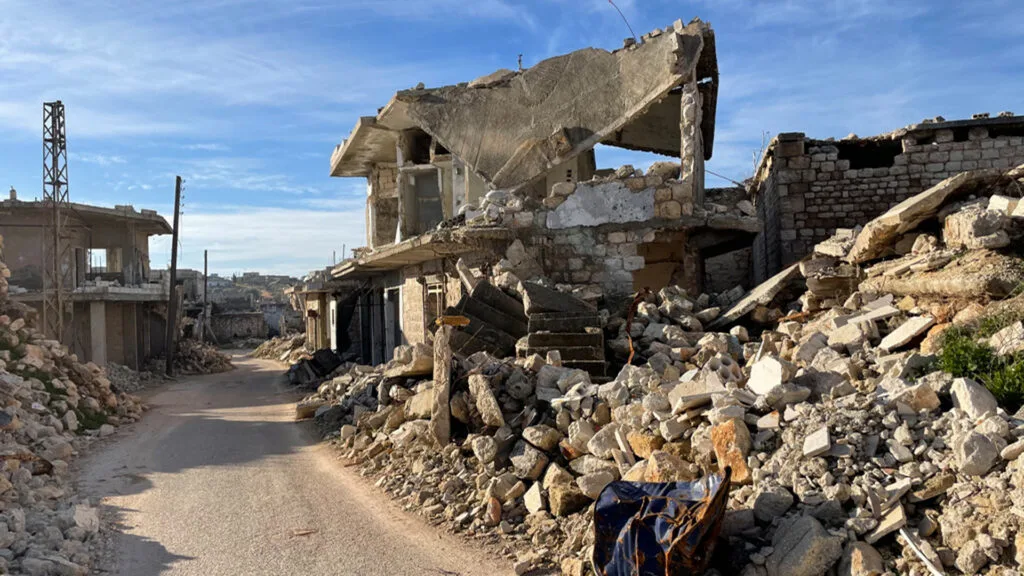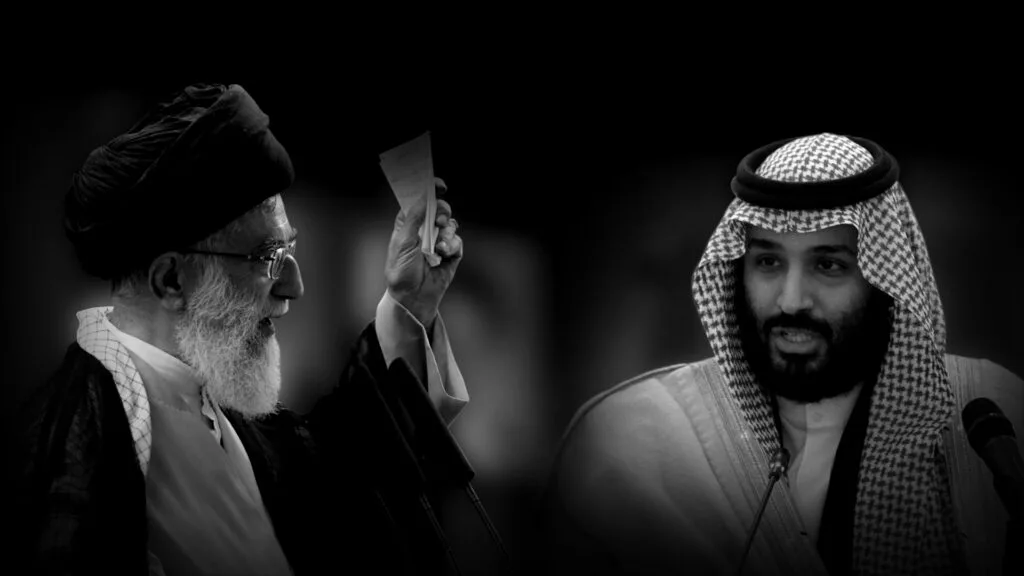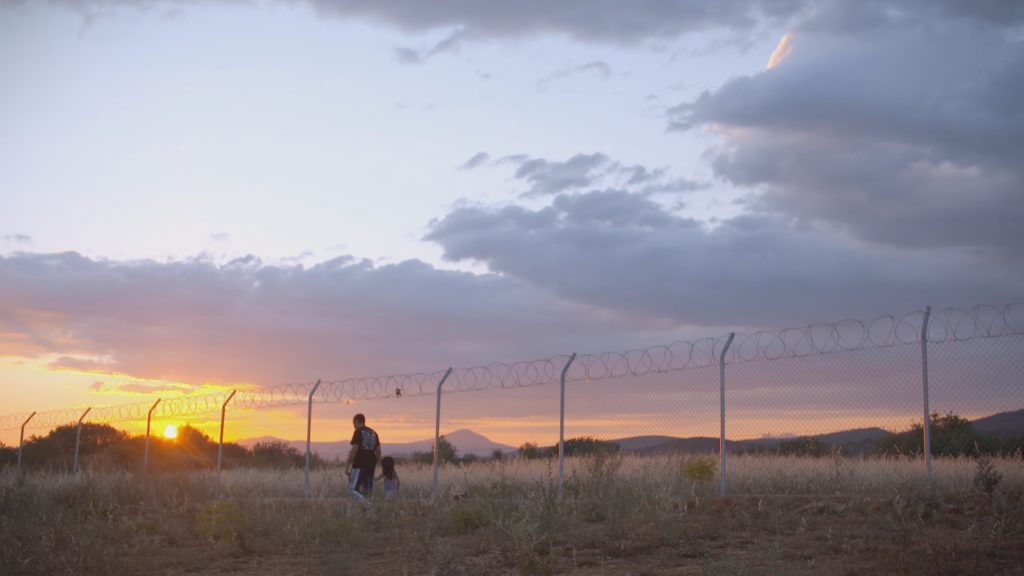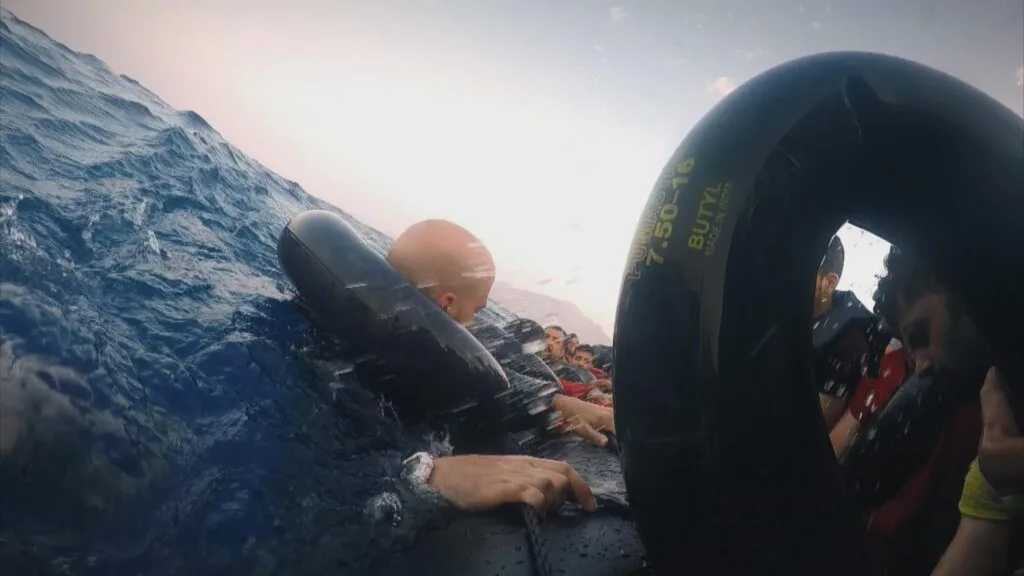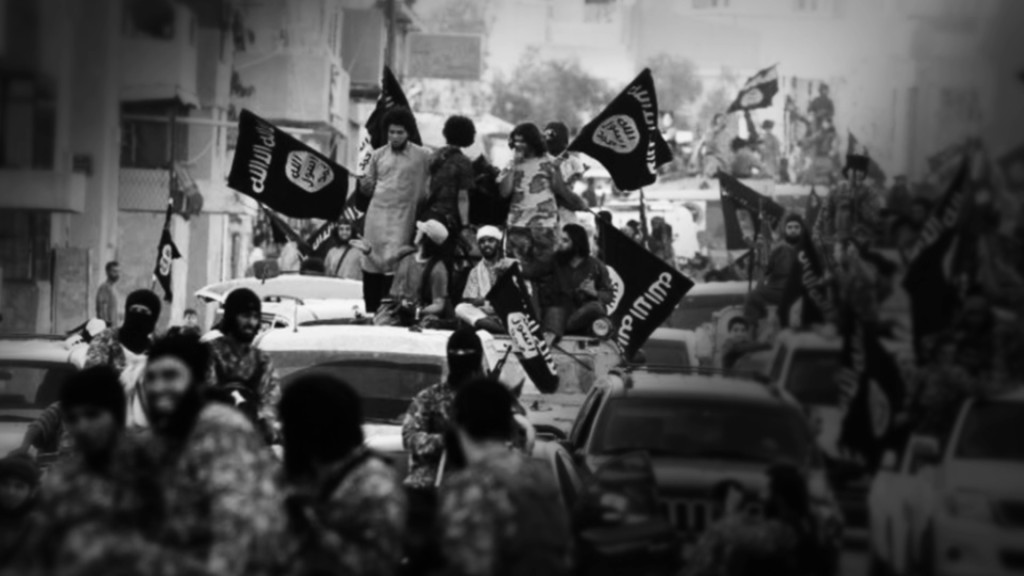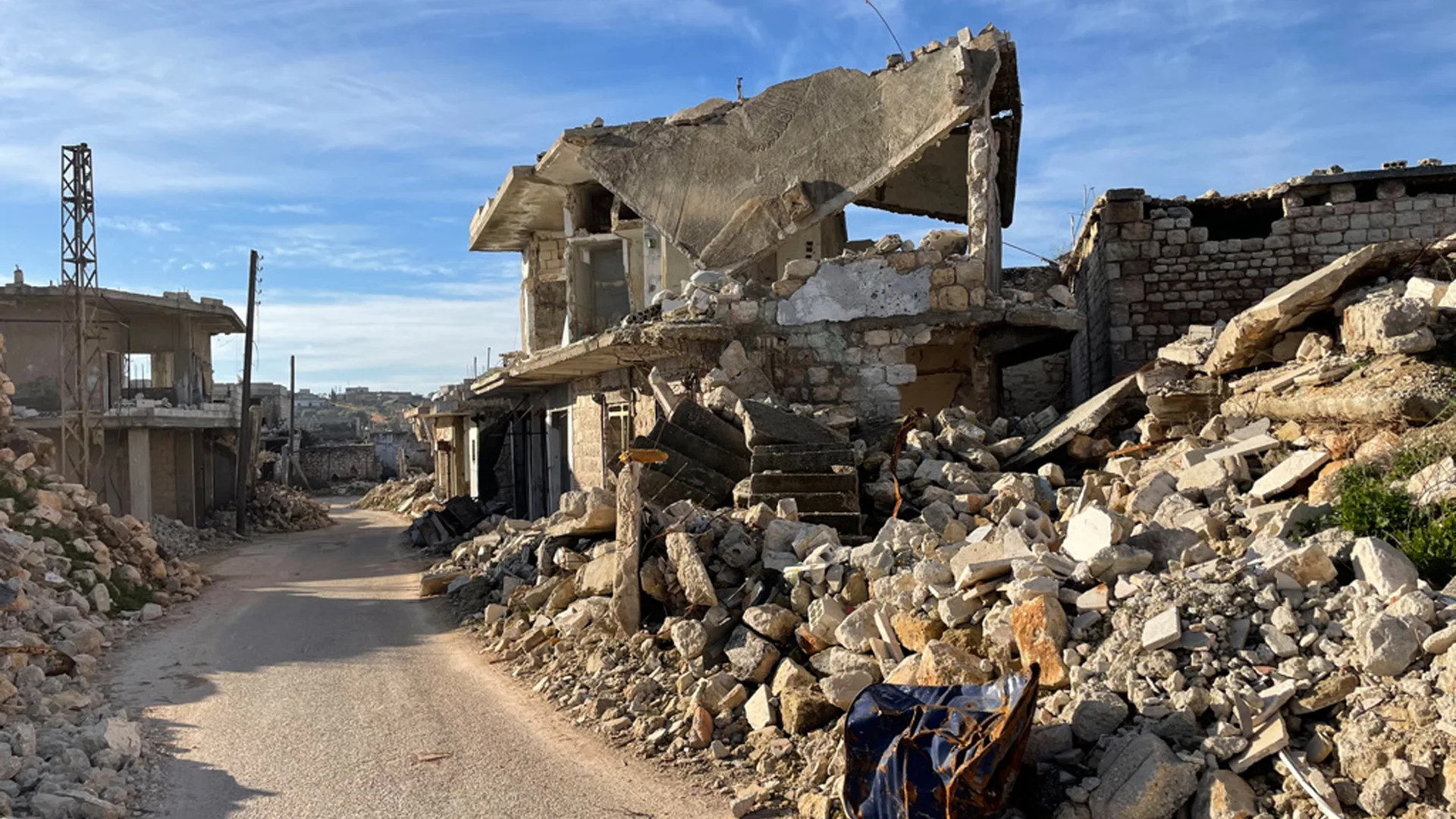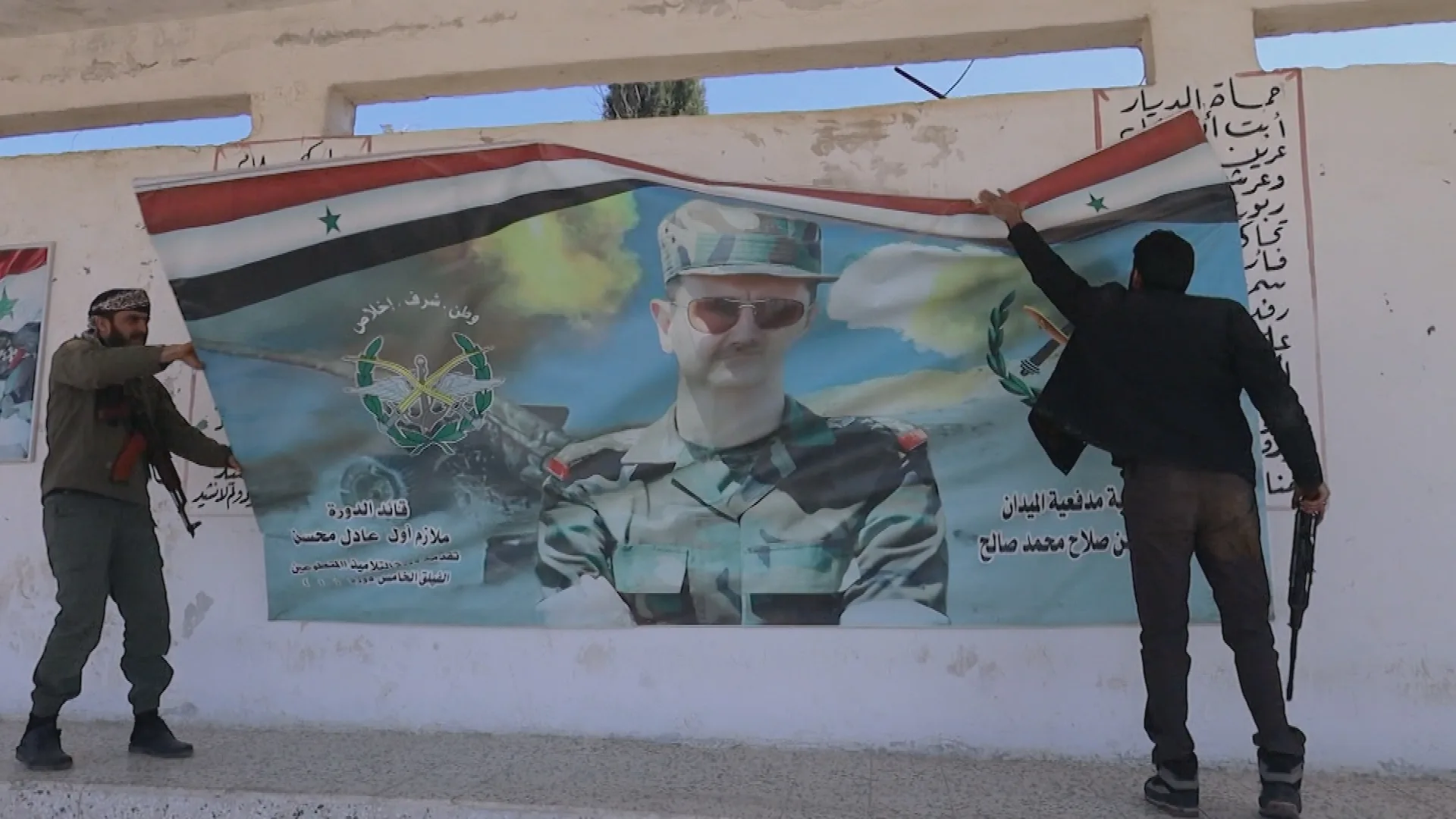Trump Calls for an End to U.S. Sanctions Against Syria Under New President. Who Is Ahmad Al-Sharaa?
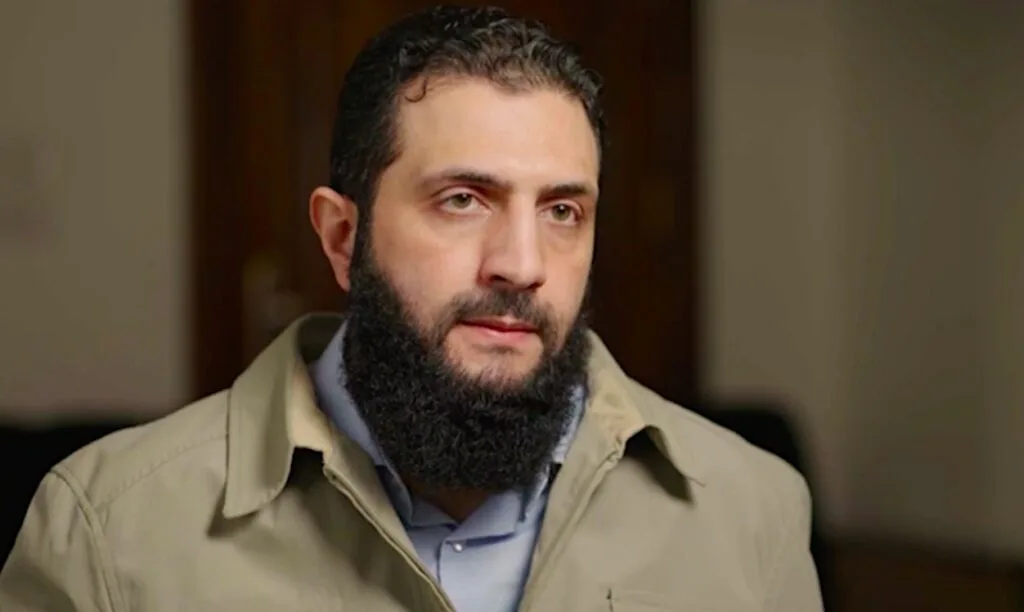
May 14, 2025
Share
President Donald Trump met with Syria’s interim president, Ahmad al-Sharaa, in Riyadh, Saudi Arabia, on May 14, a day after saying that he would order an end to U.S. sanctions on Syria in order to give the country “a chance at greatness.” The meeting was the first between leaders of the U.S. and Syria in over two decades.
The developments come five months after Syrian rebels led by Ahmad al-Sharaa shocked the world by seizing Damascus and toppling longtime Syrian President Bashar al-Assad. The downfall of Assad followed more than 13 years of brutal war that started when Assad’s forces responded to a popular uprising in March 2011 with a swift and brutal crackdown. Hundreds of thousands of people were killed in the conflict and millions were displaced from their homes or lost their livelihoods.
“In Syria, which has seen so much misery and death, there is a new government that will hopefully succeed in stabilizing the country and keeping peace,” Trump said on May 13. After meeting al-Sharaa the next day, Trump described him as a “tough guy” with a “strong past” and said, “He’s got a real shot at pulling it together.”
Until Assad’s December 2024 ouster, al-Sharaa went by the nom de guerre Abu Mohammad al-Jolani and was the leader of the Islamist militant group Hayat Tahrir al-Sham (HTS).
In 2021, FRONTLINE correspondent Martin Smith became the first Western journalist to interview al-Sharaa. The documentary that followed, The Jihadist, investigated his origins, his group, and his ambitions for Syria — with al-Sharaa telling Smith his fight was with Assad, not the U.S., as he appealed for broader Western acceptance.
Read more: Interview: Abu Mohammad al-Jolani
As the documentary reported, over most of two decades, al-Sharaa’s life was a roadmap of Islamist militancy in Iraq and Syria. He battled U.S. forces in Iraq and was jailed by the Americans for several years. He had risen through the ranks of the group then known as the Islamic State of Iraq, or ISI, and then with help from ISI’s successor, ISIS, al-Sharaa founded an Al Qaeda affiliate in Syria, Jabhat al-Nusra.
In 2021, al-Sharaa said he was seeking a new relationship with the West. By then, he had broken with ISIS and Al Qaeda. Al-Sharaa said he focused on military targets in Syria, not civilians. He told Smith he wanted “to confront an unjust, tyrannical regime that is killing people.” He said, “We are defending the people.”
Smith’s interview with al-Sharaa took place in Idlib province after al-Sharaa and HTS — which the U.S. labeled a terrorist group in 2018 — helped establish a civic authority governing more than 3 million civilians there, many of them displaced from other areas of Syria by the war.
Read more: Explore the Syrian War’s Origins and Consequences
In his 2021 interview with Smith, al-Sharaa claimed there was common ground between the U.S. and his group, which had been fighting against Assad, Assad’s Russian and Iranian allies, ISIS and al-Sharaa’s own former allies in Al Qaeda.
“First and foremost, this region does not represent a threat to the security of Europe and America,” al-Sharaa told Smith. “This region is not a staging ground for executing foreign jihad.”
As he investigated whether al-Sharaa could be trusted, Smith also tracked down and interviewed al-Sharaa’s critics and victims. Al-Sharaa’s group and its earlier incarnations stand accused of human rights violations, including indiscriminate attacks on civilian areas, torture and arbitrary arrests of civilians. Al-Sharaa denied to Smith that he had imprisoned and tortured his critics.
“There is torture, and it’s brutal torture, and there are barbaric methods being used by these terrorists,” a man whose brother was imprisoned and executed after criticizing HTS on social media told Smith.
But Smith found that some U.S. experts and veteran diplomats in the region credited al-Sharaa with establishing a semblance of stability in Idlib province and acting as a buffer against forces hostile to the United States.
James Jeffrey, a top diplomat in the region during the Bush, Obama and first Trump administrations, indicated at the time that it might be wise to work with al-Sharaa.
“Look, he’s the least bad option of the various options on Idlib, which is one of the most important places in Syria, which is one of the most important places right now in the Middle East,” Jeffrey told Smith in the documentary.
The U.S. designated al-Sharaa as a terrorist in 2013, under his nom de guerre. Following Assad’s ouster in December 2024 and assurances from al-Sharaa that he wouldn’t allow Syria to become a staging ground for terror attacks, the Biden administration lifted a $10 million bounty on al-Sharaa and took steps to facilitate some transactions with Syria’s post-Assad government. The Biden administration, however, left the decision about al-Sharaa and HTS’ terrorist designation to the incoming Trump administration.

Related Documentaries
Latest Documentaries
Related Stories
Related Stories
Explore
Policies
Teacher Center
Funding for FRONTLINE is provided through the support of PBS viewers and by the Corporation for Public Broadcasting, with major support from Ford Foundation. Additional funding is provided the Abrams Foundation, Park Foundation, John D. and Catherine T. MacArthur Foundation, Heising-Simons Foundation, and the FRONTLINE Trust, with major support from Jon and Jo Ann Hagler on behalf of the Jon L. Hagler Foundation, and additional support from Koo and Patricia Yuen. FRONTLINE is a registered trademark of WGBH Educational Foundation. Web Site Copyright ©1995-2025 WGBH Educational Foundation. PBS is a 501(c)(3) not-for-profit organization.


